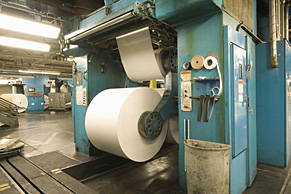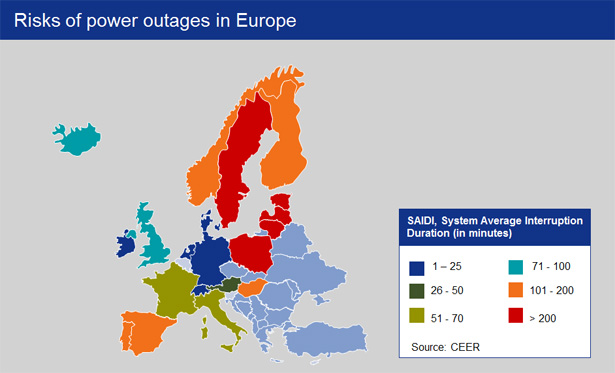There's now been no power for over an hour. The technical head of the copper-smelting works is starting to get antsy. Inside the vats, the copper is starting to cool down. If the power outage continues for some time, the copper will cool down, solidify and destroy the entire smelting works. Furnaces, vats, pipes: the entire facility would become blocked up with copper and would have to be rebuilt from scratch. "In a paper works, a mini power outage of a single second is enough to put the entire facility out of action for several hours", explains Michael Bruch, Head of R&D, Risk Consulting at Allianz Global Corporate & Specialty (AGCS). Even if there's only a brief power cut, this means that the equipment that rolls up the paper no longer works. And this will cause the paper to tear. If this happens, the employee in charge has to stop production and reinstall everything. This can take several hours.
"If we cover all losses, no matter how small, things will get too expensive for our customers."
If entire factories are brought to a standstill that lasts for hours, losses can run into the millions, even resulting in economic ruin. To avoid having to pay any losses out of their own pocket and, in a worst case scenario, having to file for bankruptcy, company owners take out "business interruption insurance". Depending on the business area and the need for electricity, such an insurance policy can be a real life-saver. Michael Bruch explains why.
allianz.com: Which types of company are particularly dependent on electricity?
Michael Bruch: "The more production is automated, the more vulnerable it becomes to power outages. Manufacturers of semi-conductors or the steel industry are particularly hard hit. Textile or glass production, on the other hand, is at the less vulnerable end of the spectrum. But even here, losses can quickly run into hundreds of thousands. We apply the basic principle of insurance, i.e. we help out when things get really tough. To protect companies against short power cuts, we provide our customers with consultants who can help set up an emergency power supply. If we were to cover all losses, no matter how small, we'd have to raise premiums, but then our policies would no longer be affordable for our customers. So it makes sense to invest more in loss prevention."
allianz.com: Often major losses are also caused by a variety of severe weather events. Are power outages caused by weather conditions on the rise, too?
Michael Bruch: "Definitely, and there are two reasons for this. Firstly, as the world's population increases, people also move into higher-risk areas such as regions that are prone to flooding or start building in areas where there are frequent tornados. Ever-expanding mega cities are beginning to encroach on dangerous regions, because they are simply running out of space. Secondly, climate change has an effect. We are seeing an increase of extreme weather situations such as drought and flooding."


